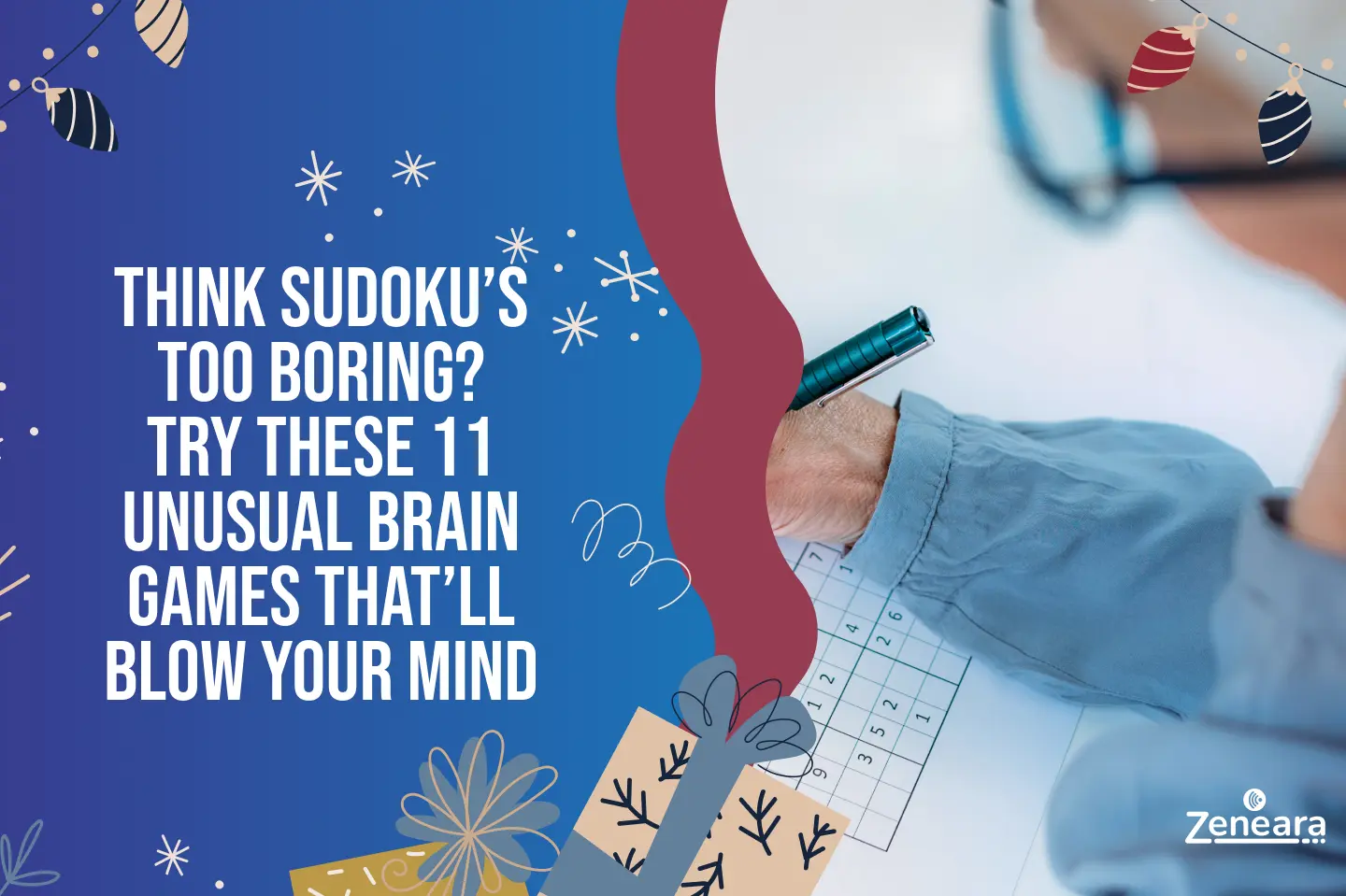It’s Sunday, and let me guess…
You’re probably sipping coffee… scrolling through your favorite blogs… or mentally debating whether today is a ‘lazy day’ or a ‘let’s-do-something-productive’ kind of day.
Well, here’s a thought…
What if you could do both?
What if you could kick back, relax, and give your brain a fun, engaging, and surprisingly effective workout?
Let me ask you this…
What was your favorite childhood game?
Was it Simon Says or maybe a heated round of Memory Match?
It’s funny how those simple games weren’t just time-fillers. They were secretly training your brain. And the best part? They still work, no matter how many candles are on your birthday cake.
Here’s the thing…
As someone deeply invested in brain health—and yes, ear health too, because let’s not forget how much sound influences the brain. I believe in keeping our minds as sharp as our hearing.
Why? Because life is too short to lose your edge.
Think of your brain like a muscle…

The more you use it in different ways, the stronger it gets.
But when was the last time you really challenged it?
I’m not talking about the mental gymnastics of choosing what to watch on Netflix. I mean the kind of challenges that make your neurons light up like fireworks.
And hey, if Sudoku or jigsaw puzzles aren’t your thing, don’t worry… you’re not alone. Not everyone gets a thrill from fitting pieces or solving number grids.
That’s exactly why these 11 unusual brain-boosting games are so exciting.
They’re creative, quirky, and don’t feel like “traditional” mental workouts.
In fact, you might just find yourself laughing or marveling at how quickly your brain adapts to something totally unexpected.
Curious? Let’s dive in…
Opposite Day
Why It’s Great:
Using your non-dominant hand for tasks like brushing teeth or writing stimulates new neural connections, enhancing brain plasticity. It’s a simple, low-pressure way to train your brain to adapt to unfamiliar challenges. Plus, it’s hilariously awkward, which adds a fun twist to your daily routine.
Bonus Insight: Tasks like this are great for rewiring your brain, which is especially helpful as we age to keep our minds flexible and adaptable.
How to Play:
Choose a simple daily activity (e.g., brushing your teeth, using a spoon, or even typing on your phone) and do it with your non-dominant hand. Progress to more challenging activities like writing a sentence or drawing a shape.
In Just 7 Words
Why It’s Great:
Crafting a story in just seven words sharpens verbal skills and encourages outside-the-box thinking. It’s also a quick and creative way to tap into your imagination without the pressure of writing something lengthy.
Bonus Insight: This exercise can improve communication skills by teaching you to express complex ideas succinctly.
How to Play:
Create a mini-story using only seven words. Get creative with themes like mystery, humor, or nostalgia. It’s a fun challenge. Personally, I love playing this game with my wife. It’s amazing how a few words can spark so much laughter, imagination, or even a little friendly competition. Give it a try… you might be surprised at the stories you come up with together.
For example:
- “Forgotten door opened, revealing past’s hidden treasure.”
- “She searched, he waited, destiny brought them together.”
Name Your Colors
Why It’s Great:
Based on the Stroop Effect, this game challenges your brain to process conflicting information, boosting focus and cognitive flexibility. It’s a fantastic mental workout for improving your ability to concentrate under pressure.
Bonus Insight: It helps train your brain to handle distractions better, making it a great exercise for multitaskers.
How to Play:
Write color names on paper but mismatch the text color and the word (e.g., “RED” written in blue ink). Read the ink color (not the word) aloud as quickly as possible. There are also Stroop Test apps available if you want a digital version.
Spot the Difference
Why It’s Great:
Strengthens visual attention, observational skills, and memory recall. This game feels playful but works wonders for enhancing your ability to notice and retain details.
How to Play:
Study a room for one minute, then leave while someone makes 3–5 small changes (e.g., moving a book, swapping cushions, etc.). Return and identify the differences.
Pro Tip: Gradually increase the number of changes for more of a challenge.
Count Backward
Why It’s Great:
Counting backward by intervals sharpens numerical memory, focus, and mental arithmetic. It’s a simple but effective way to keep your brain active and quick with calculations.
How to Play:
Start with a large number (e.g., 500) and subtract by a fixed interval (e.g., 7).
Example: 500, 493, 486, 479…
Bonus Challenge: Switch to irregular intervals (e.g., subtract 13 each time) or alternate between subtraction and addition.
BONUS: Game Apps to Boost Brain Power

If you’re more into digital games, these apps provide an excellent way to train your brain:
1. Lumosity
- Offers personalized games targeting memory, attention, and problem-solving skills.
- Popular for its science-based approach.
2. Elevate
- Focuses on improving verbal, math, and writing skills with beautifully designed games.
- Tracks your progress over time.
3. Peak
- A collection of games designed to boost focus, mental agility, and memory.
- Features a daily brain workout tailored to your needs.
4. NeuroNation
- Provides challenging exercises for attention, logic, and emotional intelligence.
- Great for personalized brain training.
5. Brainwell
- A well-rounded app offering games for logic, focus, and even mindfulness.
6. CogniFit
- Delivers cognitive training through engaging games backed by neuroscience.
- Allows you to target specific skills like memory or problem-solving.
7. Stroop Effect Test Apps
- Perfect for playing Name Your Colors digitally. Look for free Stroop Test apps on app stores.
Wrapping up,These games, whether analog or digital, challenge your brain in new and exciting ways.
Whether you count backward, create micro-stories, or spot differences, you’re giving your brain a much-needed workout… without feeling like you’re “working.”
So, what’s your go-to brain-boosting game? Share your favorite in your reply or try one from the list today. Let’s keep those neurons firing!





